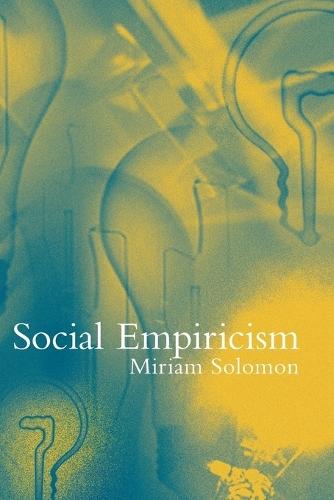Overview
For the last forty years, two claims have been at the core of disputes about scientific change- that scientists reason rationally and that science is progressive. For most of this time discussions were polarized between philosophers, who defended traditional Enlightenment ideas about rationality and progress, and sociologists, who espoused relativism and constructivism. Recently, creative new ideas going beyond the polarized positions have come from the history of science, feminist criticism of science, psychology of science, and anthropology of science. Addressing the traditional arguments as well as building on these new ideas, Miriam Solomon constructs a new epistemology of science. After discussions of the nature of empirical success and its relation to truth, Solomon offers a new, social account of scientific rationality. She shows that the pursuit of empirical success and truth can be consistent with both dissent and consensus, and that the distinction between dissent and consensus is of little epistemic significance. In building this social epistemology of science, she shows that scientific communities are not merely the locus of distributed expert knowledge and a resource for criticism but also the site of distributed decision making. Throughout, she illustrates her ideas with case studies from late-nineteenth- and twentieth-century physical and life sciences. Replacing the traditional focus on methods and heuristics to be applied by individual scientists, Solomon emphasizes science funding, administration, and policy. One of her goals is to have a positive influence on scientific decision making through practical social recommendations.
Full Product Details
Author: Miriam Solomon (Temple University)
Publisher: MIT Press Ltd
Imprint: Bradford Books
Edition: New edition
Dimensions:
Width: 15.20cm
, Height: 1.30cm
, Length: 22.90cm
Weight: 0.318kg
ISBN: 9780262693523
ISBN 10: 0262693526
Pages: 196
Publication Date: 26 January 2007
Recommended Age: From 18
Audience:
Professional and scholarly
,
Professional & Vocational
Format: Paperback
Publisher's Status: Inactive
Availability: Out of stock

Reviews
Social Empiricism is not only important but short, clear, lively, and well-supported by case studies.... Perhaps most importantly, as Solomon herself points out, her arguments have long-range implications for science funding, administration, amd policy. This book will serve well both philosophers and their students. -- <b>Catherine Hundleby</b> * <i>Philosophy in Review</i> *
Social Empiricism is not only important but short, clear, lively, and well-supported by case studies.... Perhaps most importantly, as Solomon herself points out, her arguments have long-range implications for science funding, administration, and policy. This book will serve well both philosophers and their students. - Catherine Hundleby, Philosophy in Review [Solomon] has cast a sharp eye over the intellectual landscape not only of the philosophy of science but of science studies more generally. And she has seen a clear way forward. Whether or not one chooses to follow her path, we can all benefit from her bold and clear vision. - Ronald N. Giere, Mind
Author Information
Miriam Solomon is Professor of Philosophy at Temple University. She publishes widely in the areas of philosophy of science, epistemology, and medical ethics. She is the author of Social Empiricism (MIT Press, 2001).



